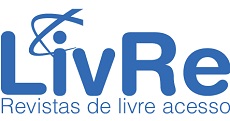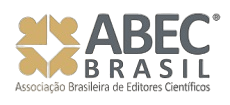Levantamento de boas práticas aplicadas à gestão de resíduos sólidos urbanos no contexto das cidades inteligentes
DOI:
https://doi.org/10.36661/2596-142X.2022v4n1.14041Palabras clave:
Desenvolvimento Sustentável, Gestão Inteligente, Resíduos Sólidos, TecnologiaResumen
Com o rápido crescimento urbano, a gestão pública enfrenta um grande desafio: promover a sustentabilidade nas cidades. A concentração urbana traz consigo uma necessidade de desenvolvimento sustentável em vários aspectos, como qualidade de vida, educação, infraestrutura, saneamento, transporte, energia e segurança. Nesse contexto, surgem as cidades inteligentes, que utilizam a tecnologia como ferramenta para melhorar a qualidade de vida nas áreas urbanas. Um dos principais desafios para alcançar a sustentabilidade e atingir as metas dos Objetivos do Desenvolvimento Sustentável (ODS) é a eficiência na gestão dos resíduos sólidos urbanos (RSU), devido ao aumento da geração de resíduos decorrentes do processo de urbanização. Esta pesquisa baseou-se em uma revisão da literatura que identifica boas práticas de gestão de RSU aplicadas em vários países e também inovações tecnológicas na gestão e gerenciamento dos RSU no contexto de cidades inteligentes. A literatura revela que existem desafios a serem enfrentados em países em desenvolvimento devido a restrições financeiras e deficiências na governança. Portanto, foram elaboradas diretrizes que podem auxiliar outras cidades a seguir o exemplo das cidades inteligentes e superar esses desafios. Entre as diretrizes identificadas para uma gestão eficiente de RSU, destacam-se: governança transparente, legislação adequada, educação ambiental, eficiência na segregação e coleta seletiva, implementação de tecnologias e envolvimentos da sociedade. A gestão de RSU é fundamental para alcançar a sustentabilidade nas cidades. As cidades inteligentes oferecem oportunidades para aprimorar essa gestão por meio do uso da tecnologia. No entanto, é importante considerar as particularidades de cada contexto e enfrentar os desafios existentes, buscando soluções inovadoras. Através da implementação de boas práticas e do engajamento da sociedade, será possível construir cidades mais sustentáveis e inteligentes.
Descargas
Descargas
Publicado
Número
Sección
Licencia
-
O(s) autor(es) autoriza(m) a publicação do artigo na revista;
-
O(s) autor(es) atesta (m) que a contribuição é original e inédita e que não está em processo de avaliação em outra(s) revista(s);
-
A revista não se responsabiliza pelas opiniões, ideias e conceitos emitidos nos textos, por serem de inteira responsabilidade de seu(s) autor(es);
-
É reservado aos editores o direito de proceder ajustes textuais e de adequação do artigo às normas da publicação;
-
Autores mantêm os direitos autorais e concedem à revista o direito de primeira publicação, com o trabalho simultaneamente licenciado sob a Creative Commons Atribuição 4.0 Não Adaptada, que permite o compartilhamento do trabalho com reconhecimento da autoria e publicação inicial nesta revista













